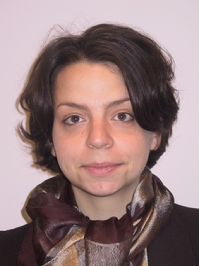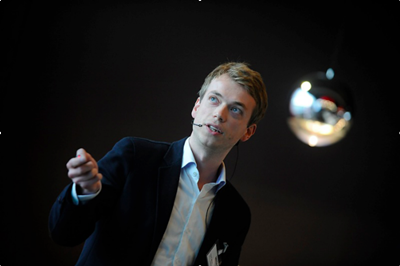Two top professors appointed at the Stratingh Institute for Chemistry

Nathalie Katsonis will be appointed Professor of Active Molecular Systems and Tibor Kudernac Associate Professor in Life-Like Supramolecular Mechanics. Both are currently working at the University of Twente. They will join the Stratingh Institute for Chemistry with their research groups in April 2020.
Nathalie Katsonis: Professor of Active Molecular Systems
Nathalie Katsonis received her PhD (2004) degree from the University Pierre et Marie Curie (Paris, France). For her postdoctoral research she moved to the group of Ben Feringa to investigate chirality and order in supramolecular assemblies. In 2008 she became Associate at the French National Center for Scientific Research and later she took up a tenure-track position at the University of Twente (the Netherlands), where she was promoted Full Professor in 2017. She is interested in unravelling the rules by which controlled molecular motion can be transmitted across length scales, with a special focus on the role of chirality and on the contribution of molecular machines in the emergence of purposeful movement from chemistry. Her work has been recognized by awards (e.g. Gold Medal from the Royal Netherlands Chemical Society in 2017) and her research is supported by the European Research Council (StG 2010 and CoG 2017) and the Dutch Research Council (Veni 2004 and Vidi 2010).

Tibor Kudernac: Associate Professor in Life-Like Supramolecular Mechanics
Tibor Kudernac studied chemistry at the Pavel Jozef Safarik University in Slovakia, before moving to Groningen to carry out his PhD with Ben Feringa and Bart van Wees. After a post-doctoral stay with Steven de Feyter in Leuven (Belgium) and a postdoctoral fellowship in Groningen, he was appointed Assistant Professor at the University of Twente in 2013, and Associate Professor in 2019. His work aims at developing artificial supramolecular and polymerisation machines that can exert forces and generate useful work at the nanoscale, e.g. to manipulate soft objects from the nanoscale upwards. One aspect of his research program is inspired by the supramolecular components of the cytoskeleton and how they support the life of the cell. The research of Tibor Kudernac is supported by the Dutch Research Council (Veni 2009, ECHO 2017) and the European Research Council (CoG 2018). He was the 2016 EuChemS Young Investigator for the Netherlands.
More news
-
10 February 2026
Why only a small number of planets are suitable for life
-
09 February 2026
Can we make the earth spin in the opposite direction?
